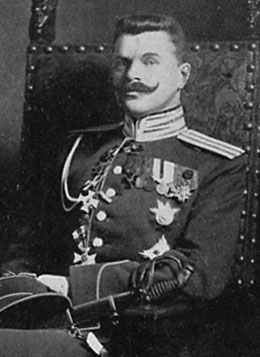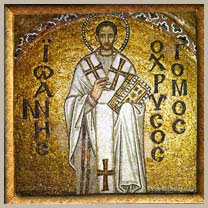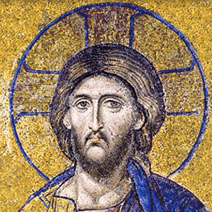Biographies - Alexander Ivanovitch Spirodovitch
Alexander Ivanovich Spiridovitch
by Rob Moshein

Alexander Ivanovitch Spiridovitch was born August 5, 1873 (old style) in the small town of Kemi in the Archangel government, on the shore of the White Sea. His father, Ivan Matveyovitch Spiridovitch was a Second Captain in command of a regiment of border guards.
The Spiridovitch family was listed in the Book of the Nobility's Sixteenth section, having been granted a hereditary Noble Title by Tsar Alexis in 1668, and confirmed by an Ukaze which granted them land and serfs in the Smolensk region.
Second Capt. Spiridovitch immediately made a declaration of his son's birth to the Assembly of the Nobility of Smolensk for which he was given a certificate of Nobility in his son's name.
His father instilled in him as his guiding principles a love of God, Tsar and devotion to his country: "For the Faith, For the Tsar and for the Nation" was his motto.
However much his father loved young Alexander Ivanovitch, he was raised strictly in accordance with the customs of the era and later recalled that his father never "spared the rod" in raising his son. The slightest disobedience to any elder person, even his four older sisters, or the least shirking of enthusiasm or effort on his part would result in application of the switch.
As an officer's son, he was boarded at State expense at the Corps of Cadets of Count Araktcheyev in Nizhny-Novgorod. At 17, he graduated with the grade of probationary under-officer and went straight into the First Pavlovskoe Military School in St. Petersburg. Three years later, he graduated and was promoted to sub-Lieutenant of the 105th Orenburg regiment garrison in Vilna.
Military life was not enough for the young Spiridovitch, however. He passed the exam to enter the Military Academy of Law with the goal of entering the Gendarmes Corps. On December 31, 1899, he was named by Ukaze to the Moscow post of the Gendarmes Corps under Chief of Police, General Trepov, who was also in command of the Moscow section of the Okhrana.
In 1902 he was named Chief of the Kiev Section of the Okhrana. At that time, Kiev was a principle center of activity for the Socialist-Revolutionary party. Spiridovitch and his men were highly recognized for their counter-terrorist work, and at the young age of 29, Alexander Ivanovitch was promoted to Lieutenant Colonel. In May 1905, Spiridovitch was shot twice at close range in the streets of Kiev by a pistol fired by the Bolshevik terrorist Peter Rudnenko. He was forced by his injuries to take a leave of absence from service and rest until the winter of 1905.
At that time, the new Commandant of the Palace, to the Emperor, General Trepov realized that the Emperor required a better personal security service, one which was not subject to either the military nor to the police. He felt that the safety and security of the Imperial family should be entrusted to an organization which was totally independent of these competing interests and which would answer only to the Commandant of the Palace and the Emperor himself. Nicholas II concurred and approved the new plan.
Trepov, early in 1906, offered Spiridovitch this new and yet unformed position as the Chief of the Personal Secret Guard to the Emperor. Spiridovitch created what was, in effect, an early equivalent to the modern U.S. Secret Service and became a constant daily fixture in both the Alexander Palace and the lives of the Imperial family. Spiridovitch was given absolute authority over the Okhrana, municipal police and the military when it came to matters concerning the Imperial family. He was furnished by them with virtually all reports and surveillance done by these organizations, and knew everything possible about every single person who might approach the Imperial Family. He had the authority to order an investigation into anyone he wished, regardless of their power or postion.
Day in and day out, for the next ten plus years, Spiridovitch and his men assured the safety of the Tsar and the Imperial family. They went wherever the Tsar and his family went, both in Russia and abroad. He and his men were in eyesight of them all "24-7" whenever they were outside the walls of the Palace. For his meticulous efforts and great success in creating this new service, Nicholas II promoted him several times, to Colonel, and then Major General, and awarded him the Order of St. Stanislaus, with Star and Ribbon. He also earned the French Legion of Honor and was given the Order of Commander of the Victoria's Cross.
Alexandra Feodrovna disliked Spiridovitch because she felt that he and his men never gave her any privacy, nor would they "leave her alone" to come and go as she pleased without their constant surveillance. Spiridovitch, however, took his orders from the Emperor himself, and felt that it was his duty to watch all of the Imperial Family with the same zeal and dedication with which they watched the Emperor. Despite the Empress's feelings, Nicholas II approved of the manner in which Spiridovitch guarded the safety of the Imperial family. The Tsar was always grateful to Spiridovitch for his devotion and efforts, and showed him great kindness at all times.
Spiridovitch's greatest challenge came with the assassination of Prime Minister Stolypin in Kiev in 1911 during the intermission of a gala performance in the Theater with the Imperial family in attendance. Spiridovitch, in his position, held the ultimate responsibility for security, and many blamed him and held him personally responsible that the assassin Bogrov was able to enter the theater with a pistol. Inquests and hearings were held into the matter. Late in 1912, formal judicial hearings by the Council of the Empire were discussed against Spiridovitch and the others in charge of security in Kiev. On January 5, 1913, however, Nicholas II sent an order to the Council of the Empire that they were to immediately halt any further proceedings against the men as he felt, after reading the investigations, that Spiridovitch was innocent of any charges. When asked why he had done so by those who felt Spiridovitch was indeed culpable for the murder of Stolypin, Nicholas II responded: "I know full well how Spiridovitch has performed his duties next to me for the last seven years. How can you ask me to place him up for judgment when I know full well that even while out hunting I need only to turn around to see Spiridovitch behind some tree, never taking me out of his sight and watching everything which happens around us?" The matter was never brought up again.
Spiridovitch had some personal tragedies as well. His first wife went insane and contracted tuberculosis. She refused to take any medicines or food, believing that everything was poisoned. He sat by her bedside, personally tasting each bowl of soup or dose of medicine to convince her it was safe. Despite his efforts, she died. A few years later, his only son died of Scarlet Fever. For years after his wife's death his children were raised by friends as he was required to be by the Tsar's side at virtually all times wherever he went.
During the First World War, Spiridovitch even accompanied Nicholas II on each trip to the Mogilev headquarters. In August 1916, the Tsar named him to be the new Prefect and Commandant of the Yalta garrison, where he was in personal charge of all of the Imperial properties, including Livadia, Oreyanda and Massandra among others.
On February 20, 1917, he was ordered back to St. Petersburg to report to the Emperor, and told to wait there until the Emperor returned from Mogilev. On March 2, he was arrested under the personal order of Kerensky and held in the Troubetskoy prison in Peter and Paul Fortress for six months. On October 2, he was released by accident. He was forced into hiding by the October Bolshevik Revolution, and was arrested by them in January 1918 yet soon released. During the summer of 1918, he learned that he was number 19 on the list of those who were to be shot by the Bolsheviks. He and his second wife and children managed to escape Petersburg, and settled in Paris in 1920.
Living in Paris, Spiridovitch became an historian, and wrote three books: a history of his life and service to the Tsar, another was a detailed biography of Rasputin which included many interviews with those who had known Rasputin first hand, and a definitive history of the Socialist-Revolutionary movement in Russia before 1917. His papers are kept in the Yale University Library. Alexander Spiridovitch never in his life lost any of his love, affection and devotion for his Tsar and the Imperial Family.
Please send your comments on this page to the author - Rob Moshein





 Imperial Bedroom
Imperial Bedroom Portrait Hall
Portrait Hall Mauve Room
Mauve Room Maple Room
Maple Room Aleksey's Bedroom
Aleksey's Bedroom Nicholas's Study
Nicholas's Study Aleksey's Playroom
Aleksey's Playroom Formal Reception
Formal Reception Balcony View
Balcony View Aleksey- Balcony
Aleksey- Balcony Children-Mauve
Children-Mauve Nicholas's Bathroom
Nicholas's Bathroom Alexandra- Mauve
Alexandra- Mauve Nicholas's Reception
Nicholas's Reception Tsarskoe Selo Map
Tsarskoe Selo Map